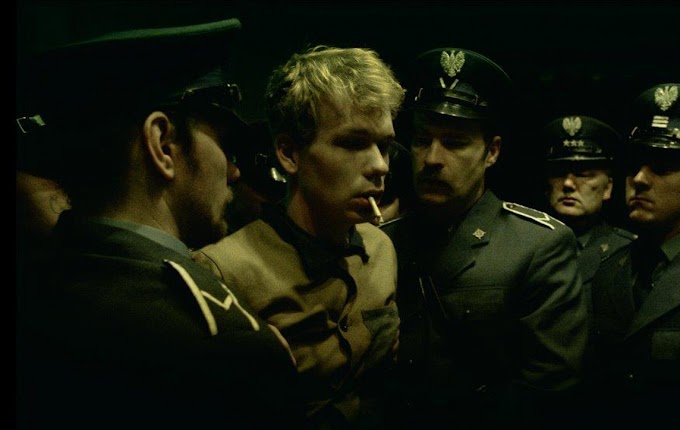Sick movie. Difficult to produce a critique built on a universe that eludes interpretation so much. The only thing that can be verbalized is the impact of the film.

It's common
to talk about cinematic UFOs for every David Lynch movie. Yet the disastrous
Dune aside, only one really fits that qualification: Eraserhead.
Eraserhead
enters the restricted family of successful experimental films, alongside, for
example, 2001: A Space Odyssey, The Night of the Hunter or Persona. And
curiously, although being the first film of its author, it is about the most
definitive of his career. Indeed, Lynch will never be so radical, never will he
experiment so much from the point of view of the special effects (which have
not aged a bit) and the soundtrack, and he will never again reach such a
degree. of perfection. But now, as a spectator, what to think of this work?

Indeed, this
film from elsewhere is very difficult to approach. Besides, what is Eraserhead?
Horror movie ? A black comedy? A surrealist fable? A little all of this at the
same time, but not only. The first film of the great filmmaker who is David
Lynch today is not the kind to reveal itself at first sight. The first time, we
are a little confused by this absurd, perverse and somewhat repulsive universe.
And the story, is there one? In short, we do not know what to think ... Lynch
sees his film as the assessment of the years spent in Philadelphia. Well,
imagine that if you take a closer look, this may be the most accurate
interpretation. At the second vision, strange fact, the film becomes wonderful.
What seemed repulsive to us the first time now exudes great poetry and sweet
melancholy. And this time, we think of a specific film: 2001 by Stanley
Kubrick. Indeed, on several points, the two films echo each other, especially
on their first and last shot (for the anecdote, Kubrick will affirm that
Eraserhead is the only film he would have liked to make). 2001 opened with a
spectacular rise of planets in a Cinerama sky on the bombastic Thus Spoke
Zarathustra by Richard Strauss. This opening told us that we were going to
witness a journey through the infinitely great.
Eraserhead is
also entitled to a cosmic opening, except that here the sky is in 4/3, we are
only entitled to a single and tiny planet, and that a face, that of the main
character, appears in superimposition to fill the entire screen. This shot
tells us that we are going to travel inside the character's mind, through the
infinitely small, an inner odyssey, to the depths of his soul. And this
journey, like that of Dave Bowman, the hero of 2001, will result in a kind of
astral purity.

So after a
second vision, we are finally able to see in Eraserhead another story than the
one "marked on the back of the jacket". Eraserhead is the story of a
man trapped in his dreary and hopeless daily life, who in his dilapidated
apartment finds a temporary escape through dreams. By dreaming of an alluring
neighbor, of a lady in a radiator, a sort of fantasized grandmother, who smiles
at her and sings to her in her song, "In heaven, everything is fine
...", a paradise that does not certainly does not exist in this world, and
of which he can only dream. This is one of the bases of the Lynchian nightmare,
which we will find in almost all his future films: the human being is a
prisoner of his condition and searches in vain for a way out. This way out can
be death (Twin Peaks, Mulholland Drive ...), a road (Wild at heart) or madness
(Lost Highway, Mulholland Drive). But most of the time, the characters are
caught up in their nightmare. Ultimately, the Lynchian nightmare is nothing
more than the human condition.

To conclude,
Eraserhead is far from being that naughty and stupidly provocative little film
that it has been called too often. It is in fact an intimate, tragic and
desperate work, a multi-faceted cosmic poem. Quite simply, a beautiful film.

.png)

0 Comments